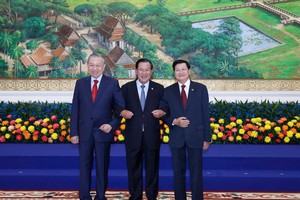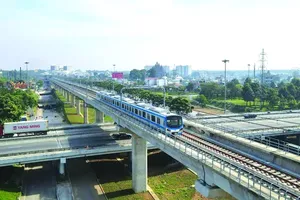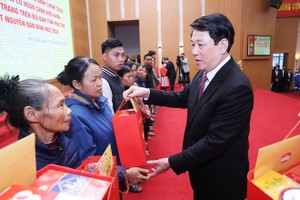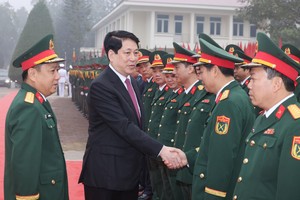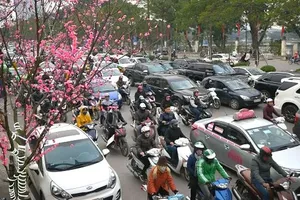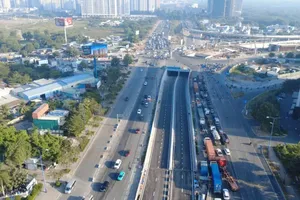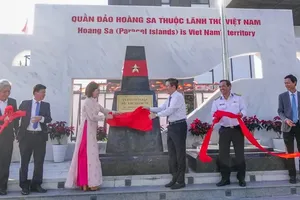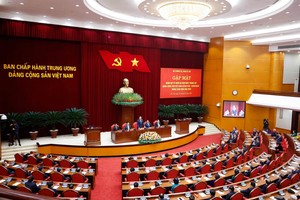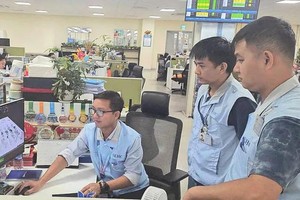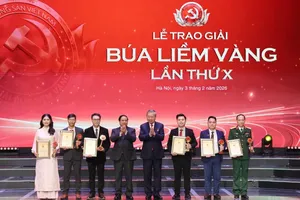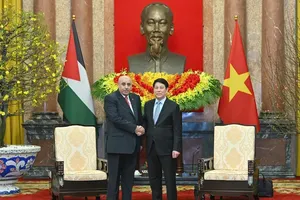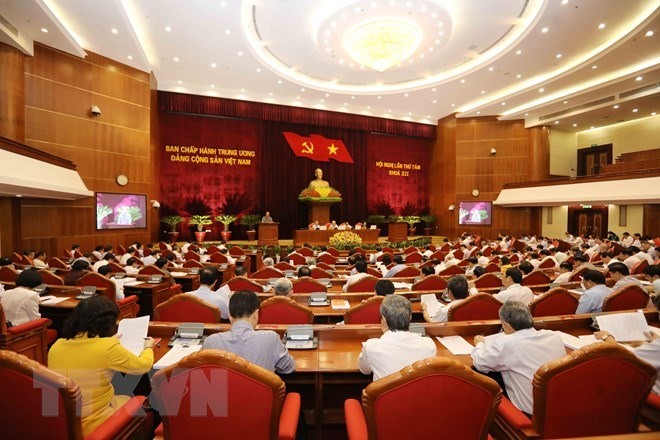
This was particularly imperative for officials who held key positions in the Politburo, the Party Secretariat and the Party’s Central Committee, says a draft party rule which is being discussed during the ongoing CPV’s eighth plenum in Hanoi.
The 12th Central Committee of the Communist Party of Vietnam spent the fourth working day of its 8th plenum on Friday discussing regulations on the responsibility of Party cadres and members to set good examples.
In the morning, the Party Central Committee (PCC) discussed regulations on responsibility of officials and Party members to be role models, first of all members of the Politburo, the PCC Secretariat and the PCC.
The establishment of sub-committees to prepare for the 13th National Party Congress was also tabled for discussion.
In the afternoon, the PCC gathered for a plenary session, continuing to debate the above issues.
Before the meeting, there had been many instances of high-ranking members of the Party charged with important responsibilities failing to set good examples. Some officials had even committed numerous violations to the Party’s code of conduct, becoming involved in corrupt practices causing waste to the State and grievances among the people, said Party chief Nguyen Phu Trong.
Trong had urged the CPV to establish official rules to clearly define what was expected of Party members to maintain ethical standards, especially among top ranking officials.
The draft rules would tackle corruption and improve accountability. This would also extend to relatives who may take advantage of their positions for personal gain through under-the-table deals with businesses.
A number of other important points should include prohibiting the formation of interest groups, extravagant lifestyles and the purchase of financial assets and properties outside the country. Each and every single Party official was expected to maintain a high level of self-discipline, refrain from playing favourites in the promotion of subordinates or illegally tamper with investigation and judicial processes.
Vu Mao, former chairman of the National Assembly Office, said the current Party rules for its high-ranking officials were more like recommendations rather than requirements. Mao supported the view that Party members, especially those in important offices, must be held accountable should they fail to set good examples.
He said the draft rules must be strict but simple enough to leave no room for different interpretations, a problem that had become rampant within the current regulations. In the long run, according to the former politician, they should be established as laws and applicable to all Party members and civil servants.
Commenting on the draft rule, former deputy head of the CPV’s Organisation Committee Nguyen Dinh Huong said it was of paramount importance that the Party’s top-ranking officials must shoulder the responsibility first.
“The fight against corruption must start at the top. This is where Party work on organisation and supervision is crucial,” Huong said.
CPV members are expected to vote on the draft rule during the Party’s eighth plenum. In the event it’s approved by the CPV, it is expected to serve as a major turning point in the country’s fight against corruption.
